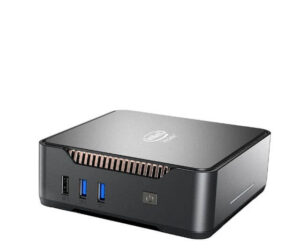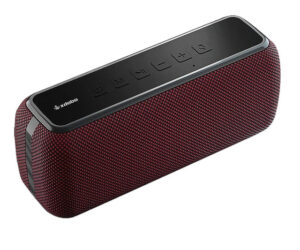Laptop vs. Tablet: Which Is the Better Choice? Make an Informed Decision.
Are you torn between buying a laptop or a tablet? It’s a common dilemma many people face when looking for a portable device that meets their needs. Each device has its own advantages and limitations, so it’s important to make an informed decision. In this article, we’ll compare laptops and tablets, exploring their features and functionality to help you determine which one is the better choice for you.

Key Takeaways
- Consider your primary use. Laptops are ideal for multitasking and resource-intensive tasks, while tablets are better suited for media consumption and lighter tasks.
- Think about storage needs. Laptops offer extensive storage options, often exceeding 1TB, while tablets generally max out at around 512GB.
- Operating systems matter. Laptops have full-fledged operating systems like Windows, macOS, and Linux, while tablets operate on user-friendly operating systems like iOS and Android.
- Battery life is a factor. Laptops usually have a shorter battery life of 5-12 hours, while tablets can last up to 8-15 hours.
- Weigh the pros and cons. Consider the advantages and disadvantages of both laptops and tablets to make the best decision for your needs.
Laptop vs. Tablet: Side-by-Side Comparison
When considering whether to choose a laptop or tablet, it’s important to understand the differences and similarities between these two devices. This side-by-side comparison will examine various aspects of laptops and tablets to help you make an informed decision.
Form Factor
Laptops typically have a larger form factor with a full-sized keyboard and trackpad, while tablets are more compact and feature a touchscreen interface. The larger size of laptops provides a more comfortable typing experience for extended use, making them well-suited for tasks that require extensive text input. On the other hand, tablets are portable and lightweight, making them ideal for on-the-go use and casual tasks.
Primary Use
Laptops are versatile devices designed for a range of uses, including work, gaming, content creation, and more. They are capable of running resource-intensive applications and handling complex tasks. Tablets, on the other hand, are primarily geared towards media consumption, browsing the web, and performing lightweight tasks like email, social media, and casual gaming. While tablets can handle basic productivity tasks, they may not offer the same level of performance as laptops for demanding applications.
Operating System
Laptops typically run full-fledged operating systems such as Windows, macOS, or Linux, providing users with extensive customization options and compatibility with a wide range of software and applications. Tablets, on the other hand, often operate on more streamlined and user-friendly operating systems like iOS or Android. While these operating systems offer ease of use and a wide range of available apps, they may have limitations in terms of customization and software compatibility.
| Aspect | Laptop | Tablet |
|---|---|---|
| Form Factor | Larger size with a physical keyboard and trackpad | Compact and lightweight with a touchscreen interface |
| Primary Use | Versatile for work, gaming, content creation | Media consumption, web browsing, and casual tasks |
| Operating System | Full-fledged operating systems like Windows, macOS, or Linux | Streamlined operating systems like iOS or Android |
Battery Life
Laptops typically have shorter battery life compared to tablets. While laptops can last anywhere from 5 to 12 hours on a single charge, tablets can offer battery life of up to 8 to 15 hours. Battery life may vary depending on usage patterns and specific device models, so it’s important to consider your individual needs when evaluating battery performance.
Storage
Laptops generally offer more extensive storage options compared to tablets. It is common to find laptops with storage capacities exceeding 1TB, while tablets typically max out at around 512GB. However, tablets often rely on cloud storage as a way to compensate for their lower built-in storage capacity.
By carefully considering the differences outlined in this comparison, you can determine whether a laptop or tablet is the right choice for your specific needs. Whether you prioritize performance, versatility, or portability, understanding these distinctions will help you make an informed decision.
Design Philosophy: A Deeper Look at Form and Function
In the ever-evolving world of technology, the design philosophy behind laptops and tablets plays a crucial role in determining their suitability for different tasks and lifestyles. Each device offers a unique combination of form and function, catering to specific needs and preferences. Let’s explore the design elements of laptops and tablets that make them standout choices for various purposes.
Laptops: The Versatile Workhorse
Laptops are renowned for their versatility and adaptability, making them an ideal choice for work, student life, and college. One of the key design elements that sets laptops apart is the tactile keyboard. The physical keys provide a familiar typing experience, enabling quicker and more accurate input, essential for tasks that involve writing, coding, or data entry.
Another standout feature of laptops is the array of ports that they offer. From USB ports to HDMI, Ethernet, and SD card slots, laptops provide a wide range of connectivity options, allowing for seamless integration with various peripheral devices such as printers, external monitors, and external storage drives. This makes laptops an excellent choice for professionals who require multiple connections and expandability.
Laptops also boast a clamshell design, featuring a hinge that allows the device to open and close like a traditional notebook. This design not only provides protection for the screen but also offers a more ergonomic viewing experience by allowing the screen to be propped up at an angle. The ability to adjust the screen angle enhances productivity and reduces strain on the neck, making laptops an optimal choice for prolonged work or study sessions.
Tablets: Sleek and Portable
In contrast, tablets prioritize streamlined efficiency and user-friendliness with their slim and portable form factor. The absence of a physical keyboard is a defining design element of tablets. Instead, they offer a touchscreen interface, allowing for intuitive and direct interaction with the device. This design is particularly well-suited for tasks that require quick navigation, such as browsing the web, consuming media, and using apps.
Tablets excel in portability, offering lightweight and compact designs that make them easily transportable. Their slim profiles allow them to be slipped into a bag or carried effortlessly, making them an excellent choice for students and individuals on the go. Tablets are particularly popular among college students who benefit from the convenience and mobility provided by these devices.
The touchscreen interface of tablets also enables a more immersive and interactive experience, making them suitable for creative tasks such as drawing, sketching, and note-taking. Many tablets come with stylus support, further enhancing the precision and versatility of input. This design feature is especially advantageous for students who need to take handwritten notes or artists who require a digital canvas.
In Summary
When deciding between a laptop and a tablet, understanding the design philosophy behind each device can aid in making an informed choice. Laptops offer a diverse range of features, including tactile keyboards, multiple ports, and a clamshell design, making them a versatile workhorse for demanding tasks. On the other hand, tablets prioritize sleekness, portability, and touchscreen interfaces, catering to users who value simplicity and mobility. Consider your specific needs, whether for work, student life, or college, to select the device with the design elements that align with your requirements.
Laptop vs. Tablet: Processing Power Comparison
When it comes to processing power, laptops and tablets have distinct differences that make them suitable for different tasks. Laptops are known for their superior processing capabilities, making them the better choice for resource-intensive tasks such as work, study, and college needs. Tablets, on the other hand, prioritize power efficiency and are more suitable for everyday tasks but may struggle with high-intensity applications.
With a laptop, you can expect powerful performance thanks to their engineered design for multitasking. Most laptops come equipped with multi-core CPUs and dedicated GPUs, allowing them to handle demanding applications like video editing, graphic design, and gaming. These devices are designed to provide a seamless experience, enabling you to tackle complex tasks with ease.
Tablets, on the other hand, offer a more power-efficient and responsive touch interface, making them ideal for lighter, casual tasks. While they may not match the processing power of laptops, tablets excel in areas such as web browsing, media consumption, and mobile gaming. The responsive touchscreen interface also enhances the user experience, allowing for quick and intuitive navigation.
| Laptop | Tablet | |
|---|---|---|
| Processing Power | Superior | Lower, optimized for power efficiency |
| Main Uses | Work, study, college | Everyday tasks, media consumption |
| Performance in Resource-intensive Tasks | Excellent | May struggle |
Ultimately, choosing between a laptop and a tablet depends on your specific needs and preferences. If you require a device for demanding tasks like work or school, a laptop’s superior processing power will provide the necessary performance. However, if you prioritize portability and casual usage, a tablet’s power efficiency and touchscreen interface may be the better choice.
 References:
References:
- “Laptop Vs. Tablet: Which Should You Buy? – YouTube”, https://www.youtube.com/watch?v=6mRl4wY8VfU
- “Laptop vs Tablet: Which is Right For You?” – Lifewire, https://www.lifewire.com/laptop-vs-tablet-4686518
- “Laptop vs. Tablet: Which Is Right for You?” – Consumer Reports, https://www.consumerreports.org/cro/laptops/laptop-vs-tablet-which-is-right-for-you
Storage Capacity: Room for Your Digital Life
When comparing laptops and tablets, one significant factor to consider is storage capacity. Laptops generally offer more extensive storage options than tablets, making them suitable for storing large amounts of digital content.
Most laptops come with storage capacities exceeding 1TB, allowing you to store a vast collection of files, documents, and multimedia. Additionally, laptops often have the flexibility for storage upgrades, allowing you to expand your storage space as needed.
In contrast, tablets typically have lower storage capacities, maxing out at around 512GB. However, tablets compensate for their limited onboard storage by relying on cloud storage services. This allows you to store your files and media in the cloud, providing access to them from anywhere with an internet connection.
| Device | Storage Capacity |
|---|---|
| Laptop | Exceeds 1TB, expandable |
| Tablet | Around 512GB, relies on cloud storage |
Ultimately, the choice between a laptop and a tablet in terms of storage capacity depends on your specific needs. If you require ample storage space for extensive files or media libraries, a laptop may be the better choice. However, if you are comfortable with utilizing cloud storage solutions and prioritize portability, a tablet can still provide sufficient storage options.
Operating Systems: The Backbone of Your Digital Experience
When choosing between a laptop and a tablet, one of the deciding factors is often the operating system. The operating system serves as the backbone of your digital experience, determining the interface, functionality, and software compatibility of your device.
For laptops, you have a wide range of options, including Windows, macOS, and Linux. These full-fledged operating systems offer versatility and functionality, making laptops the preferred choice for work, students, and college use. With a laptop, you can run resource-intensive applications, multitask with ease, and customize your software and settings to suit your needs.
On the other hand, tablets operate on more streamlined and user-friendly operating systems like iOS and Android. These operating systems prioritize quick navigation, ease of use, and a seamless touch experience. Tablets are ideal for media consumption, lighter tasks, and casual use. However, they may have limitations in terms of customization and software compatibility compared to laptops.
 Ultimately, the choice between a laptop and a tablet will depend on your specific needs and preferences. If you require a device for work, extensive multitasking, or professional-grade applications, a laptop with its full-fledged operating system will provide the versatility and power you need. However, if you prioritize portability, ease of use, and media consumption, a tablet with its streamlined operating system may be the better choice for you.
Ultimately, the choice between a laptop and a tablet will depend on your specific needs and preferences. If you require a device for work, extensive multitasking, or professional-grade applications, a laptop with its full-fledged operating system will provide the versatility and power you need. However, if you prioritize portability, ease of use, and media consumption, a tablet with its streamlined operating system may be the better choice for you.
Laptop vs. Tablet: Tailoring Your Device to Your Lifestyle
When it comes to choosing between a laptop and a tablet, it’s important to consider your intended use and tailor your device to your lifestyle. Both devices offer unique advantages and cater to different needs, so understanding how you plan to use your device can help you make an informed decision.
If you’re a professional or a student who needs to multitask and work with resource-intensive applications, a laptop may be the better choice. Laptops are adaptable and powerful, allowing you to seamlessly switch between tasks and run professional-grade software. Whether you’re working on documents, editing videos, or coding, a laptop provides the versatility and performance you need.
On the other hand, if you primarily use your device for media consumption, browsing the internet, and lighter tasks, a tablet may be a more suitable option. Tablets offer a streamlined and user-friendly experience, with touch interfaces that make navigation intuitive and effortless. They are also more portable and lightweight compared to laptops, making them convenient for on-the-go use.
| Laptop | Tablet | |
|---|---|---|
| Intended Use | Work, multitasking, professional-grade applications | Media consumption, browsing, lighter tasks |
| Portability | Less portable, heavier | More portable, lightweight |
| Operating System | Full-fledged operating systems like Windows, macOS, Linux | User-friendly operating systems like iOS, Android |
| Battery Life | Varies, typically 5-12 hours | Longer battery life, up to 8-15 hours |
Ultimately, the choice between a laptop and a tablet depends on your individual needs and preferences. Assessing your intended use, considering factors such as portability, operating system, and battery life can help you find the device that best suits your lifestyle. Remember to prioritize functionality and performance for work or educational purposes, while considering convenience and ease of use for casual and entertainment-focused tasks.
Evaluating Battery Life
When choosing between a laptop and a tablet, battery life is an important consideration to ensure uninterrupted usage throughout the day. Laptops typically have a shorter battery life compared to tablets, lasting around 5 to 12 hours on average. Tablets, on the other hand, offer a longer battery life, ranging from 8 to 15 hours. However, it’s important to note that actual battery life may vary depending on usage patterns and hardware configurations.
For those who require a device that can last throughout a workday or a full day of classes, a tablet may be the better choice. The extended battery life allows for increased productivity without the need to constantly search for a power outlet. On the other hand, if you often find yourself working on resource-intensive tasks or require a device for extended periods without access to charging, a laptop with its typically longer battery life may be the more suitable option.
It’s also worth considering the charging time of each device. Tablets tend to have faster charging times compared to laptops, allowing for quick top-ups between meetings or classes. Laptops, on the other hand, may take longer to recharge, requiring more planning and downtime for charging.
Ultimately, the choice between a laptop and a tablet will depend on your specific needs and usage habits. If battery life is a top priority and you primarily need a device for everyday tasks, casual use, or media consumption, a tablet with its longer battery life may be the better choice. However, if you require a device for resource-intensive tasks, multitasking, or professional-grade applications, and don’t mind sacrificing some battery life, a laptop would be the more suitable option.
Choosing Operating Systems
When it comes to choosing between a laptop and a tablet, one of the key factors to consider is the operating system. The operating system determines the user interface, software compatibility, and overall functionality of the device. Understanding the strengths and weaknesses of different operating systems can help you make an informed decision based on your specific needs.
Windows, macOS, and Linux: Versatility and Functionality
Laptops typically offer full-fledged operating systems like Windows, macOS, and Linux. These operating systems provide versatility and functionality, making laptops suitable for a wide range of tasks. Windows is known for its wide software compatibility and customizable interface, allowing users to adapt their laptops to their specific needs. macOS, on the other hand, offers a seamless integration with other Apple devices and a user-friendly interface. Linux, although less mainstream, is highly customizable and favored by tech enthusiasts and developers.
iOS and Android: Streamlined and User-Friendly
Tablets, on the other hand, operate on more streamlined and user-friendly operating systems like iOS and Android. These operating systems prioritize ease of use and quick navigation, making tablets ideal for casual tasks and media consumption. iOS offers a seamless integration with other Apple devices and a vast selection of tablet-specific apps. Android, known for its versatility, offers a wide range of tablets with varying features and price points, catering to different user preferences.
When choosing the operating system, consider your specific needs, such as software compatibility, customization options, and preferred user interface. Think about the types of applications you will be using and whether or not they are available on the operating system you are considering. Additionally, consider any existing devices you may have and whether or not they are compatible with the operating system you are leaning towards.
| Operating System | Strengths | Weaknesses |
|---|---|---|
| Windows | – Wide software compatibility – Customizability |
– Can be resource-intensive – May require antivirus software |
| macOS | – Seamless integration with Apple ecosystem – User-friendly interface |
– Limited software compatibility – Higher price point |
| Linux | – Highly customizable – Preferred by developers |
– Steeper learning curve – Limited mainstream software compatibility |
| iOS | – Seamless integration with Apple ecosystem – Vast selection of tablet-specific apps |
– Limited customization options – Higher price point |
| Android | – Versatility with various tablet options – Wide range of apps available |
– Fragmentation of the operating system – Lower quality control |
Take your time to research and evaluate the operating systems available for laptops and tablets. Consider your preferences, requirements, and budget before making a decision. Remember, the operating system plays a crucial role in determining your overall digital experience, so choose wisely to ensure the best fit for your needs.
Knowing The Pros And Cons
When deciding between a laptop and a tablet, it’s important to consider the pros and cons of each device. Both laptops and tablets offer unique features and capabilities that cater to different needs and preferences. Understanding these advantages and disadvantages can help you make an informed decision based on your specific requirements.
Let’s start with laptops. One of the main advantages of laptops is their power and flexibility. Laptops are designed for resource-intensive tasks and offer robust processing capabilities, making them ideal for demanding applications like video editing, gaming, and professional work. Laptops also come with extensive storage options, allowing you to store large files and programs without relying on cloud storage. Additionally, laptops offer full-fledged operating systems like Windows, macOS, and Linux, providing versatility and functionality for a wide range of tasks.
On the other hand, tablets have their own set of advantages. Portability is one of the key benefits of tablets. They are slim, lightweight, and easy to carry, making them perfect for on-the-go use. Tablets also offer a more affordable price range compared to laptops, making them accessible to a wider audience. Tablets are great for media consumption, browsing the internet, and performing lighter, casual tasks. They often have longer battery life compared to laptops, allowing you to use them for extended periods without needing to charge.
Choosing between a laptop and a tablet ultimately depends on your specific needs and preferences. Consider factors such as the intended use, processing power, storage capacity, and operating system compatibility. By carefully weighing the pros and cons of each device, you can make a decision that aligns with your lifestyle and requirements.
Table:
| Laptop | Tablet | |
|---|---|---|
| Advantages |
|
|
| Disadvantages |
|
|
By considering both the pros and cons, you can make a well-informed decision that aligns with your specific needs and preferences. Whether you prioritize power and flexibility or value portability and affordability, there is a device that will suit your requirements.
Conclusion
After considering the various factors and comparing laptops and tablets, you now have a better understanding of which device may be the better choice for you. Both laptops and tablets have their own advantages and disadvantages, so it’s important to weigh them against your specific needs.
If you are looking for a device that offers a harmonious blend of utility and mobility, along with powerful performance and extensive storage options, a laptop may be the ideal choice. Laptops are versatile and adaptable, making them suitable for work, student, and college use. They offer full-fledged operating systems and are compatible with professional-grade applications.
On the other hand, if you prioritize portability, ease of use, and affordability, a tablet may be the better option. Tablets are lightweight and compact, making them convenient for media consumption and casual tasks. They have user-friendly operating systems that provide quick navigation and a responsive touch interface.
In the end, the decision between a laptop and a tablet comes down to your personal preferences and usage requirements. Consider whether you need a device for resource-intensive tasks, multitasking, or professional use, or if you prioritize mobility and simplicity. By making an informed decision, you can choose the device that best suits your lifestyle and enhances your digital experience.
Visit www.marginse,com blog for some great articles here
FAQ
Which device is better, a laptop or a tablet?
The choice between a laptop and a tablet depends on your specific needs and preferences. Laptops offer a blend of utility and mobility with a tactile keyboard and array of ports, making them ideal for resource-intensive tasks. Tablets, on the other hand, focus on efficiency and user-friendliness with a touchscreen interface, making them better suited for everyday tasks. Consider what you will primarily use the device for and decide accordingly.
What are the main differences between laptops and tablets?
Laptops are powerful and customizable, with full-fledged operating systems and extensive storage options. They are adaptable for multitasking and professional-grade applications. Tablets prioritize power efficiency and are designed for media consumption and lighter tasks. They have streamlined operating systems and generally lower storage capacities.
Which device is better for work, a laptop or a tablet?
Laptops are more suitable for work due to their adaptability, multitasking capabilities, and professional-grade applications. The tactile keyboard and array of ports make laptops more convenient for productivity tasks. While tablets can be used for work, they are better suited for casual tasks and media consumption.
Which device is better for students?
Laptops are often preferred by students due to their versatility, multitasking capabilities, and compatibility with various educational software. Laptops provide a larger screen, a tactile keyboard for typing assignments, and the ability to run resource-intensive applications. Tablets, however, are more portable and may be a suitable option for students who prioritize mobility and consuming educational content.
Which device is better for college?
The choice between a laptop and a tablet for college depends on your specific needs and preferences. Laptops offer the versatility and power needed for college-related tasks such as writing papers, running complex software, and multitasking. Tablets, on the other hand, are more portable and can be used for note-taking, reading textbooks, and accessing online resources. Consider your academic requirements and lifestyle preferences before making a decision.
How does battery life differ between laptops and tablets?
Laptops generally have a shorter battery life, typically lasting 5-12 hours. Tablets, on the other hand, offer longer battery life, ranging from 8-15 hours. However, battery life can vary depending on usage and specific device models.
How do you choose between different operating systems when deciding between a laptop and a tablet?
The choice of operating system depends on your needs and preferences. Laptops typically offer full-fledged operating systems like Windows, macOS, and Linux, which provide versatility and functionality. Tablets, on the other hand, operate on more streamlined and user-friendly operating systems like iOS and Android. Consider factors such as software compatibility, customization options, and personal familiarity when making a decision.
What are the pros and cons of laptops and tablets?
Laptops offer power, flexibility, and customization options, making them suitable for resource-intensive tasks. Tablets, on the other hand, are more portable, affordable, and convenient for media consumption. The potential disadvantages of laptops include higher cost, bulkiness, and shorter battery life, while tablets may have limitations in terms of power and software compatibility.
Should I buy a laptop or a tablet?
The decision between a laptop and a tablet depends on your specific needs and preferences. Consider factors such as the intended use, required processing power, storage needs, desired operating system, and budget. Assess the advantages and disadvantages of both devices and make an informed decision based on your individual requirements.




















